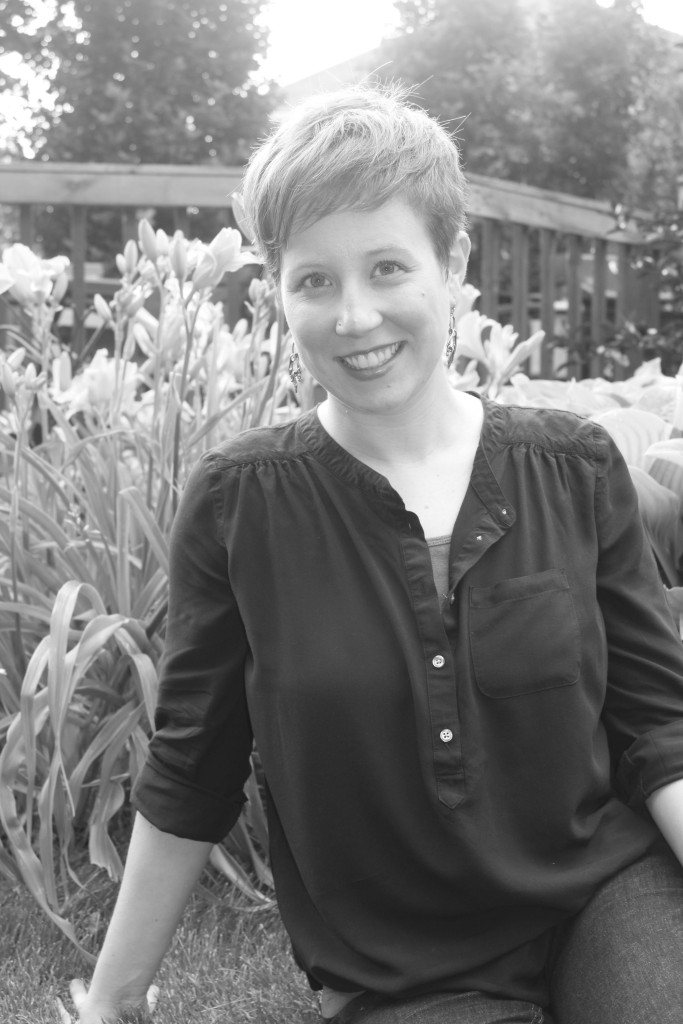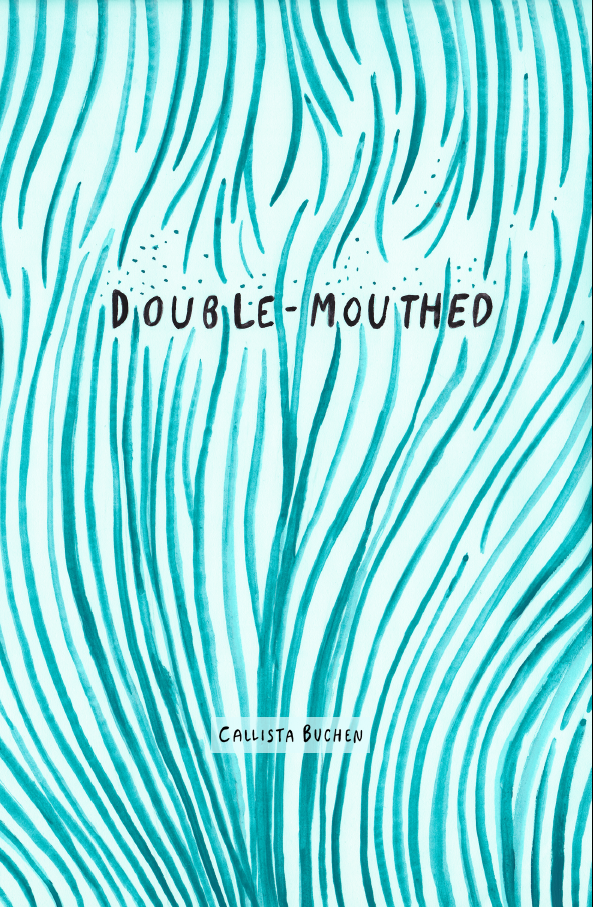Interview: Callista Buchen
 Midwestern Gothic staffer Megan Valley talked with author Callista Buchen about her poetry chapbook Double-Mouthed, making sense of motherhood, collaborative writing, and more.
Midwestern Gothic staffer Megan Valley talked with author Callista Buchen about her poetry chapbook Double-Mouthed, making sense of motherhood, collaborative writing, and more.
**
Megan Valley: What’s your connection to the Midwest?
Callista Buchen: The Midwest is woven into my experience of and view of the world. I’m originally from Wisconsin, and I’ve lived for long stretches in Ohio, Kansas, and Indiana (after a brief stint out west in Oregon). These are my people.
MV: How has teaching writing at Franklin College influenced how you approach your own writing?
CB: Teaching writing gives you the opportunity to talk about writing a lot—I’m constantly thinking about writing and how best to discuss it with my students, how I can help them find their way in this field. All this thinking helps me stay engaged with my own writing. After all, I’m a working writer honing her craft, just as they are. Plus, I love reading and responding to student work—they’re brilliant and challenging, and they keep me reaching to do better.
MV: What’s the most important piece of advice you have for your students?
CB: I tell my students to read and to think about what they read, and to do so with rigor and compassion.

MV: Double-Mouthed, your collection of poetry, acknowledges the “collapse of the self that can accompany motherhood.” How does the title reflect that theme of destruction and rebuilding?
CB: This is a chapbook about what happened after I became a mother, and how that experience made me think in new ways about identity and selfhood, and the fragility of what I had once believed to be stable. The title reflects a kind of doubleness that is bound up in contemporary motherhood, this desire to be multi-faceted, what it means to be a mother and an individual and how to be both, and what it means to be a woman and an individual. It speaks to how women have access to/must rely on a kind of double-speak to function in a culture that reduces them, through motherhood (among other social constructions), to objects and containers. But, is also a nod toward women as mysterious and powerful, including the way the female body operates.
MV: Your collection also calls into question how a woman determines her sense of self. How has your perception of yourself changed throughout writing your book?
CB: I composed these poems as I was trying to make sense of this experience of becoming a mother. I’m several years removed now from that initial experience, and while I can recognize the woman I was before (I’d wave to her from across the street), I’m fundamentally different now, both in ways I appreciate and in ways I mourn. Writing the book was an elegiac project, a way to acknowledge the rapid changes in my life and in my relationships and in my body and even in my own understanding of myself, all of which culture pushes us to ignore. In writing poems to understand this, I was able to take more imaginative leaps, to consider wider questions of selfhood and determination, to explore what happens when what one believes is stable is destroyed and rebuilt. My perception has changed in that I recognize myself to be both more vulnerable and more powerful than I previously understood, and this is the paradox of the poems are most interested in.
MV: You frequently write with poet Amy Ash—why is collaboration important to you?
CB: I love working with Amy. Writing with her is good for my soul, both my writing-soul and my person-soul. When we write together, something freeing happens in the process and in the poem. We usually work by alternating lines or phrases, and we often leave one another in the middle of an idea, so I simply trust that Amy will know what to do. It is never what I expect or what I would do, which is wonderful. Our poems are constantly turning from line to line, in a way that is energizing and urgent. Yet, they are still whole (we don’t remember who wrote what and there aren’t two voices in our pieces). There is also intimacy in collaborating. Writing never happens in a vacuum, but the drafting and composing process is sometimes lonely. When I write with Amy, I have a partner, not just a soundboard or a reader, but a true partner. We’re in it together.
MV: Your last book, The Bloody Planet, takes readers on a tour of the solar system, while Double-Mouthed focuses much more closely on a “smaller,” but not less important topic. What is the connection between the two books?
CB: Both books are interested in relationships and relationality, how things and objects and people relate to one another—relationships between lovers, between parents and children, between one and one’s self, between a planet and its moons. The books are, perhaps, different sides of the same coin, with The Bloody Planet turning outward and to the sky to understand the relationships between bodies and the gravities between them, and Double-Mouthed turning inward, toward the universe inside a mother.
MV: How do you know when a poem is done?
CB: I go by feel. I’m looking for complete or contained but not closed. I want poems that have a power that spills past the last line more than I want the final word.
MV: What’s next for you?
CB: I’m putting the finishing touches on a longer manuscript that expands the themes introduced in Double-Mouthed, as well as working on chapbook and full-length manuscripts with Amy.
**
Callista Buchen is the author of poetry chapbooks The Bloody Planet (Black Lawrence Press, October 2015) and Double-Mouthed (dancing girl press, April 2016). She is the winner of DIAGRAM‘s essay contest and the Langston Hughes award, with work appearing in Harpur Palate, Fourteen Hills, Puerto del Sol, Salamander, Whiskey Island Review, and many other journals. She teaches writing at Franklin College in Indiana.






